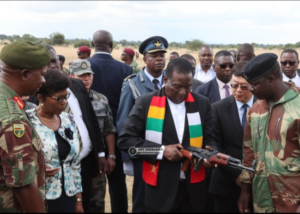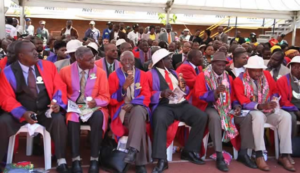A TESTAMENT TO RESILIENCE: OPPOSITION UNDER FIRE IN ZIMBABWE
In a chilling episode that underscores the volatile nature of Zimbabwe’s political landscape, Womberaiishe Nhende, a newly elected councillor for the opposition CCC, and a relative recently endured a barbaric attack. The incident, occurring barely a week after Nhende’s election, involved unidentified assailants who forcibly removed them from their vehicle, subjected them to the agonizing torment of a stun gun, and handcuffed them. This dreadful act has resonated across the nation, symbolizing a terrifying descent into an era marked by ruthless oppression.
The assault on Womberaiishe Nhende, an emblematic figure of the opposition, starkly highlights the precarious state of democratic principles in Zimbabwe. It raises alarming questions about the safety of those who bravely challenge the established political order. This attack does not only threaten the bedrock of democracy but also reveals the vulnerability of our nation’s political fabric.
Nhende’s ascent to the council position was perceived as a glimmer of hope, an indication that dissenting voices could still resonate in a milieu dominated for decades by the ruling party’s unwavering control. Regrettably, this brutal act has shattered this semblance of hope, casting a shadow of doubt over the prospects of political opposition in Zimbabwe.
The employment of a stun gun in this heinous act signifies the ferocity of the assault. Such a weapon, notorious for its severe pain and incapacitating effect, represents the oppressors’ resolve to quash opposition voices by any means necessary. The additional act of handcuffing the victims further exemplifies a blatant contempt for their human rights and dignity.
This episode also draws attention to the pervasive issue of political violence and intimidation that has marred Zimbabwe’s history. In a functional democracy, divergent viewpoints are addressed through civil discourse and fair electoral processes. However, the exposure of elected officials to such violent tactics not only impedes their public service but also undermines the foundations of democratic governance.
The global community has responded swiftly, condemning the attack and advocating for an impartial investigation. There are growing demands for accountability and justice. The incident has placed Zimbabwe under international scrutiny, increasing the urgency for the authorities to respond effectively.
In these trying times, it is imperative for the citizenry to unite in defense of democratic values and the rule of law. The assault on Womberaiishe Nhende transcends an attack on an individual; it is an assault on the principles we, as a nation, cherish. It serves as a stark reminder that the journey toward a just and equitable society continues.
As our nation confronts this distressing development, we must remember that the fortitude of a democracy is reflected in the resilience of its people. It is our collective responsibility to ensure that the voices of dissent are not stifled, that the forces of intimidation and oppression are held accountable, and that the democratic ethos of our nation prevails.
In the face of these challenges, our unity is our strength. It is through solidarity that we can surmount even the gravest of adversities. Only through a united front can we hope to emerge stronger and more committed to the ideals of democracy and freedom.



